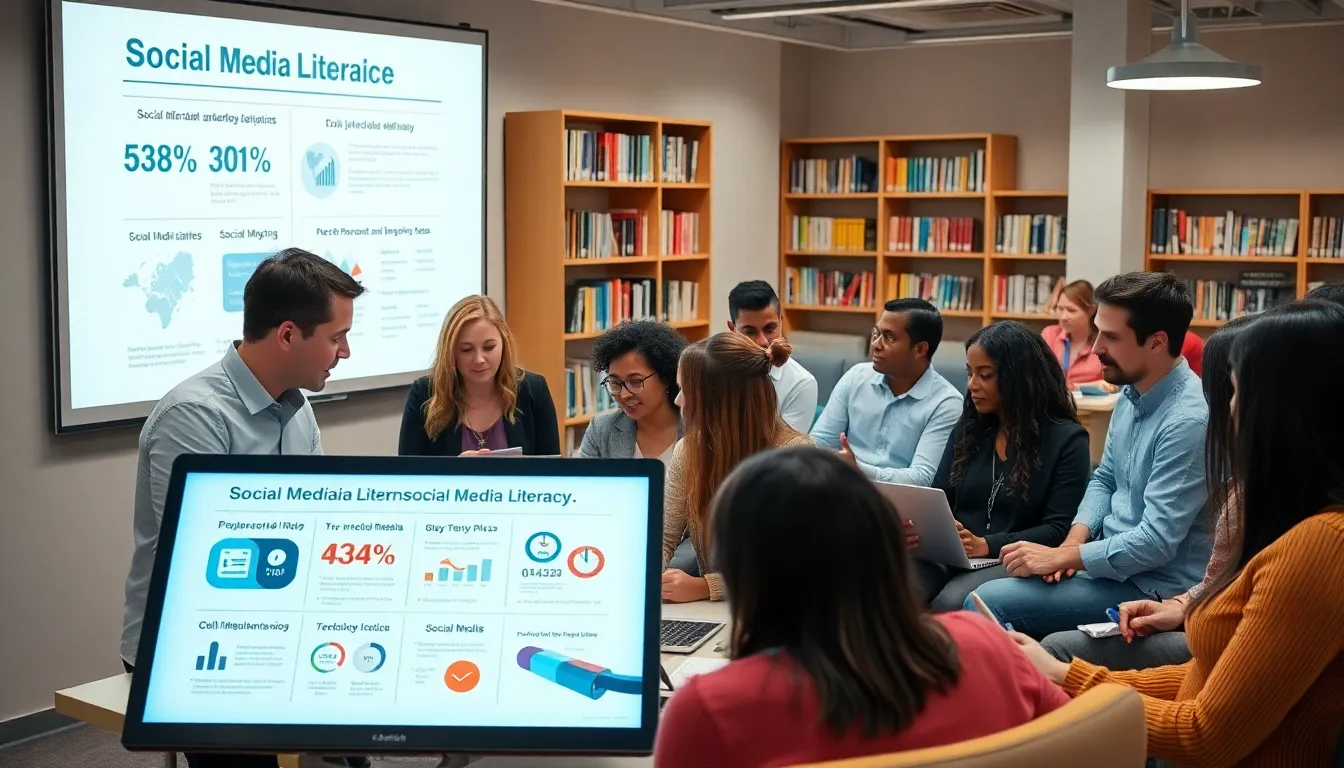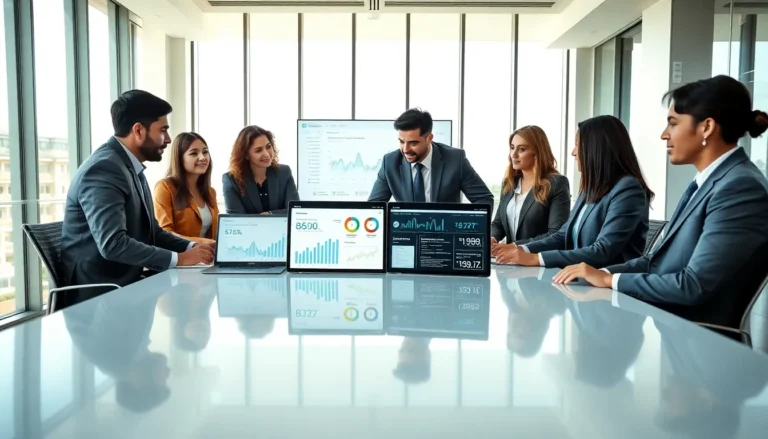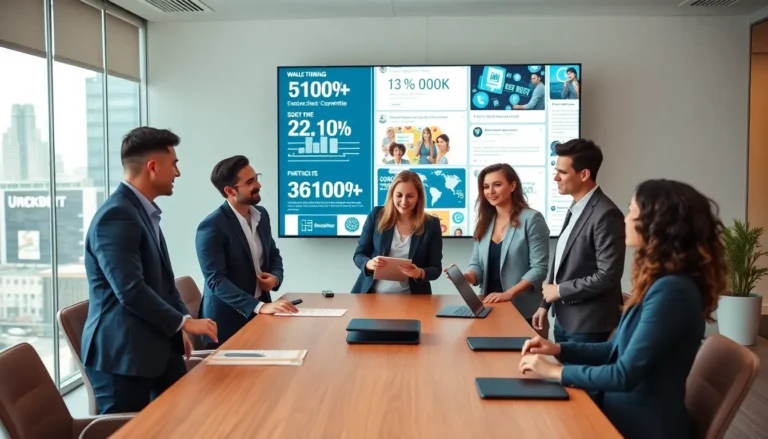In the vast jungle of the internet, navigating social media can feel like wandering through a maze without a map. Everyone seems to know what they’re doing, but how can one really grasp the nuances of social media literacy? Buckle up, because understanding this essential skill isn’t just about knowing how to post a cute cat video. It’s about empowering individuals to thrive in a digital world stuffed to the brim with information, and misinformation. Let’s immerse and ensure you’re not just scrolling, but scrolling smart.
Table of Contents
ToggleUnderstanding Social Media Literacy

Social media literacy encompasses a broad range of skills that allow individuals to engage effectively and safely on various platforms. At its core, it involves understanding how social media functions, recognizing the nature of content shared, and grasping the impact of our digital interactions. In an age where misinformation spreads faster than a trending meme, prioritizing social media literacy is crucial. This skill helps users discern fact from fiction while enabling them to contribute positively to discussions online.
The Importance of Social Media Literacy
Why exactly does social media literacy matter? For starters, it directly influences how individuals consume information. An astute user can identify credible sources, mitigating the risk of falling for the latest conspiracy theories circulating in their feed. Besides, social media has become a major platform for activism and social change. When users understand how to leverage these channels properly, they can amplify important messages and rally support for causes they care about. Ignorance isn’t bliss in the digital arena: it can lead to misunderstandings, zealous arguments, and a whole lot of unnecessary drama.
Key Components of Social Media Literacy
To foster strong social media literacy skills, one must focus on several essential components. It’s not merely about learning the latest trends: it’s about developing a critical mindset.
Developing Social Media Literacy Skills
Building social media literacy skills is a gradual process. Start by actively engaging with content rather than passively scrolling. Ask questions about what you see. Who created it? What is their intention? Taking the time to analyze posts or articles cultivates a deeper understanding of the medium.
Evaluating Sources and Information
One of the first skills to master is evaluating the credibility of sources. A beautiful infographic may be visually appealing, but that doesn’t guarantee its reliability. Cross-reference information with trusted outlets and don’t hesitate to question anything that seems off. A critical eye is your best ally.
Understanding Privacy and Security
Knowing how to protect personal information is paramount. Social media platforms often collect user data for profit. Users should be aware of what they share and who can see it. This understanding not only protects individuals but also encourages responsible sharing. Knowing how to use privacy settings can be game-changing.
Recognizing Digital Footprints
Every action taken online leaves a digital footprint. This includes likes, shares, and comments. It’s essential to reflect on how these footprints can affect one’s reputation. Schools and employers frequently vet applicants’ online presence, making awareness of one’s digital impact paramount. Recognizing the permanence of online actions promotes more thoughtful engagement.
Navigating Online Communities Responsibly
Diving into online communities often feels like entering a bustling town square. While they offer incredible opportunities for connection, they can also harbor negative interactions or clashes of opinion. To navigate these spaces responsibly, cultivate respect for differing views and prioritize constructive dialogue over combative exchanges. Familiarize oneself with community guidelines and contribute to discussions with empathy and understanding. Remember, the goal is to build bridges, not burn them.
Strategies for Enhancing Social Media Literacy
Improving social media literacy doesn’t come from a single workshop or seminar: it’s a continuous journey. Here are some effective strategies:
- Engage in Reflective Practices: Take time regularly to reflect on your online activities. Ask yourself: What did I learn today? Was I respectful in my engagements?
- Participate in Media Literacy Programs: Many organizations offer resources and workshops. Joining these can provide invaluable insights and skills.
- Stay Updated: Social media is constantly evolving. Keep abreast of changes in platform algorithms, trends, and emerging technologies to understand their impact on user experience.
- Create Meaningful Content: Try crafting original posts that encourage dialogue. Thought-provoking content can spark engaging conversations and deepen your network.
- Discuss with Peers: Sharing experiences and challenges with friends or colleagues can provide new perspectives and deepen understanding.





